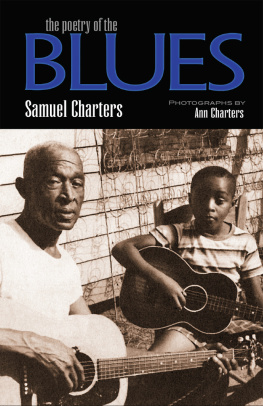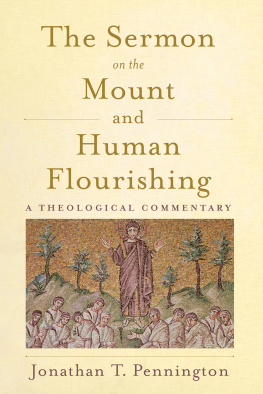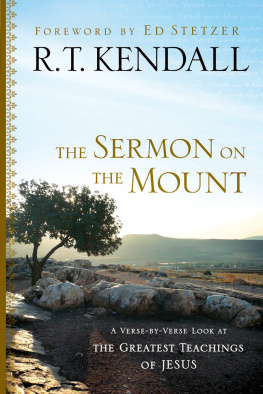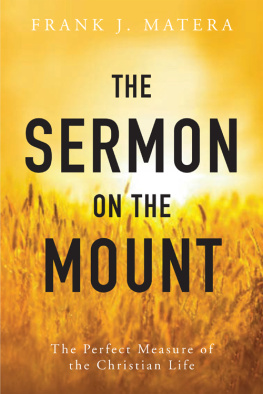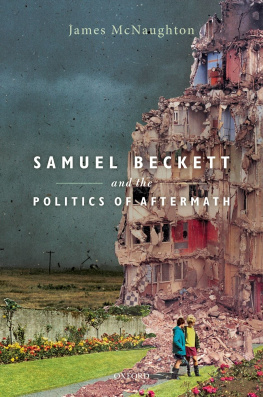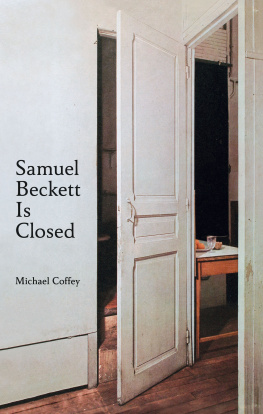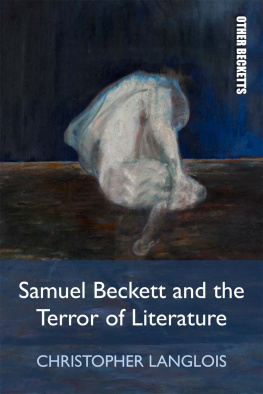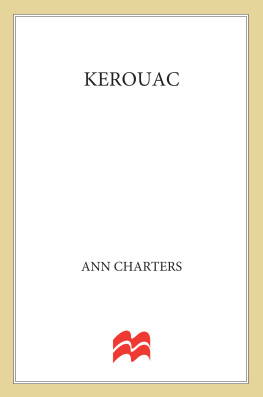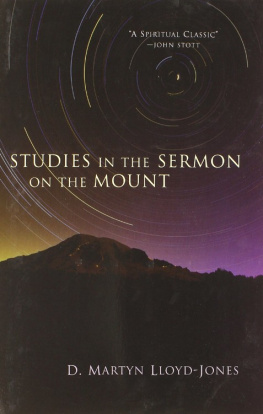Charters Samuel - A sermon on alms
Here you can read online Charters Samuel - A sermon on alms full text of the book (entire story) in english for free. Download pdf and epub, get meaning, cover and reviews about this ebook. City: Edinburgh, year: 2013, publisher: printed by George Caw. Sold by Bell & Bradfute and J. Dickson, genre: Romance novel. Description of the work, (preface) as well as reviews are available. Best literature library LitArk.com created for fans of good reading and offers a wide selection of genres:
Romance novel
Science fiction
Adventure
Detective
Science
History
Home and family
Prose
Art
Politics
Computer
Non-fiction
Religion
Business
Children
Humor
Choose a favorite category and find really read worthwhile books. Enjoy immersion in the world of imagination, feel the emotions of the characters or learn something new for yourself, make an fascinating discovery.
- Book:A sermon on alms
- Author:
- Publisher:printed by George Caw. Sold by Bell & Bradfute and J. Dickson
- Genre:
- Year:2013
- City:Edinburgh
- Rating:4 / 5
- Favourites:Add to favourites
- Your mark:
- 80
- 1
- 2
- 3
- 4
- 5
A sermon on alms: summary, description and annotation
We offer to read an annotation, description, summary or preface (depends on what the author of the book "A sermon on alms" wrote himself). If you haven't found the necessary information about the book — write in the comments, we will try to find it.
A sermon on alms — read online for free the complete book (whole text) full work
Below is the text of the book, divided by pages. System saving the place of the last page read, allows you to conveniently read the book "A sermon on alms" online for free, without having to search again every time where you left off. Put a bookmark, and you can go to the page where you finished reading at any time.
Font size:
Interval:
Bookmark:
Sermon on Alms
By
St. John Chrysostom
An introductory note explains that St. John Chrysostom never spoke extemporaneously, but that as he walked to the church he thought over and embellished what he had prepared for this occasion, and the result was this finished address, which he delivered without notes. Presumably it was taken down in shorthand, as were most of his sermons. It is thought by some scholars, on the other hand, that this sermon as we have it is a compilation made by Eusebius.
Another sermon on the text frequently cited in this argument, 1 Cor. 16:1, similar in some respects but less finished and less beautiful, is included in the Select Library of the Nicene and Post-Nicene Fathers of the Christian Church (First Series, Vol. VII, pp. 25862) edited by Philip Schaff.
There is no indication as to the exact date of this Sermon, but there is internal evidence that it cannot have been preached while he was still at Antioch, before he became Bishop of Constantinople: (1) because at Constantinople he would have had no occasion to pass through the market-place and the alleys on his way to the church; and (2) because it was the citizens of Antioch, and not of Constantinople, who sent a contribution to the inhabitants of Jerusalem, in the incident referred to in Section VI (p. 22).
The quotations from the Bible are taken from the Douai translation of the Latin Vulgate.
I have come hither to-day to undertake a righteous mission among you, a mission profitable and suitable for you. By no others than the poor who dwell in this city of yours have I been appointed the spokesman. I have been sent not by word of mouth, nor by vote of the citizens, nor by a decree of the senate, but by a most grievous and piteous spectacle.
For as I was hastening to preach before this congregation, I passed through the market-place and the alleys, and I saw many lying in the midst of the crossings, some lacking hands and feet, some without eyes, some filled with ulcers and running sores and exposing as much as possible those parts which because of the suppuration should have been covered. And I thought I would be most inhuman if I did not appeal to your charity in their behalf, especially since, in addition to the reasons I have just given, I am constrained thereto by the season of the year. For although it is always fitting to preach about alms (seeing that we in our dealings with other men are wanting in the great mercy of our Lord and Creator) yet at this season especially it is meet so to speak, when the cold is so urgent.
In the summer the pleasant weather is a great comfort to the poor; for they can even walk around naked with impunity, the rays of the sun taking the place of clothing, and can safely sleep on the bare pavement and spend the night under the open sky. And they do not require shoes, nor wine to drink, nor rich food. The fountains of water suffice for them. Sufficient are the cheaper vegetables, or a few parched beans; for at this season of the year food is easy to procure.
The season has another advantage for them which is no less importantthe opportunity to obtain work. Those who build houses, those who plough the earth, and those who sail the sea, all have great need of their services. For just as the wealthy have lands, houses, and other sources of income; so the poor have their strength and the proceeds of the labor of their hands. Nothing else is theirs.
In summer then they have some relief; but in winter they must wage a great war on every hand, doubly besieged, hunger gnawing their vitals within and cold congealing their flesh without and giving it the semblance of death. Because of this they require more abundant food and thicker clothing, and also a roof, blankets, shoes, and many other things. And this is much harder for them because they have no opportunity to work; since the season of the year does not permit.
Wherefore, seeing that they are in want of more things and those the necessities of life, and seeing that they have no opportunity to work (no one employing these wretched men, no one calling them to labor), come, let us in place of employers hold out compassionate hands to them, and on this mission let us take as our companion Paul, the true patron and protector of the poor. For he more than anyone else concerns himself with this question. For this reason, when he divided the disciples with Peter, he did not divide the care of the poor; but when he had said, They gave to me and Barnabas the right hands of fellowship: that we should go unto the Gentiles, and they unto the circumcision, he added, Only that we should be mindful of the poor: which same thing also I was careful to do. (Gal. 2:910). In fact, throughout his epistles he preaches about these things, and you will not find a single letter of his without an admonition of this kind. For he knew, he knew with certainty of how great moment this question is; and therefore, as if he were placing an exquisite dome upon a building, so to his other admonitions and counsels he adds his teaching in regard to charity.
This is what he does, indeed, in this very place when, having spoken of the resurrection and after finishing everything else, he ends his sermon with these words: Now concerning the collections for the saints, as I have given order to the churches of Galatia, so do ye also. Upon the first day of the week everyone of you (1 Cor. 16:12).
Note the apostles skill, at what an opportune moment he brings in this admonition. For after he had reminded them of that terrible judgment and tribunal which is to come, and of that glory in which they who have lived righteously will be clothed, and of the life everlasting, only then does he begin to speak of these other things; that the hearer, sustained by hope and made a readier listener, may receive them more eagerly, now moved by the fear of instant judgment, now rejoicing in the contemplation of the blessings in store for him. For he who can philosophize on the resurrection and translate himself completely into that future life, will count the present as naughtwealth, possessions, gold, silver, rich clothing, amusements, a lavish table, and everything of that sort; and he who considers these things as naught will more easily take upon himself the protection of the poor. And so Paul introduced his exhortation on alms after he had beautifully prepared their minds by means of that philosophy of the resurrection.
He did not say, Now concerning the collections for beggars or for the poor, but for the saints; instructing his hearers to honor the poorthat is, of course, if they were devoutand to spurn the rich if they despised virtue. For he calls the Emperor himself impious and wicked, if he is an enemy of God; and the poor, saints, when they are upright and virtuous. Indeed, he calls Nero the mystery of iniquity, saying, For the mystery of iniquity already worketh (2 Thess. 2:7); while on the other hand those who were without food and who lived by begging their bread, he pronounces saints. But at the same time, somewhat obscurely, he teaches his hearers that they should not be puffed up in spirit and exalted by an admonition like this, as if they were dispensing bounty to a lower and baser order of beings, but that they should understand and feel that their greatest honor is to share the hardships of the poor.
Now it will surely be worth while to inquire who these saints are; for he mentions them not only here but elsewhere as well, when he says, But now I shall go to Jerusalem, to minister unto the saints. (Rom. 15:25). And Luke, in the Acts, when a great famine was threatening, speaks of these same saints as follows: And the disciples, every man according to his ability, purposed to send relief to the brethren who dwelt in Jerusalem. (Acts 11:29). And again, in a passage which I have already quoted, he says: Only that we should be mindful of the poor: which same thing also I was careful to do. (Gal. 2:10). Verily after we had divided our work, so that I ministered to the Gentiles and Peter to the Jews, we decided by common consent, he says, that this division should not apply to the poor. When they were preaching, Paul preached to the Gentiles and Peter to the Jews, but in caring for the poor, they did not arrange that the one should devote his services to the poor of the Jews, the other only to the poor of the Gentiles; but both of them labored diligently for the poor of the Jews. And it is on that account that he said: Only that we should be mindful of the poor: which same thing also I was careful to do.
Next pageFont size:
Interval:
Bookmark:
Similar books «A sermon on alms»
Look at similar books to A sermon on alms. We have selected literature similar in name and meaning in the hope of providing readers with more options to find new, interesting, not yet read works.
Discussion, reviews of the book A sermon on alms and just readers' own opinions. Leave your comments, write what you think about the work, its meaning or the main characters. Specify what exactly you liked and what you didn't like, and why you think so.



